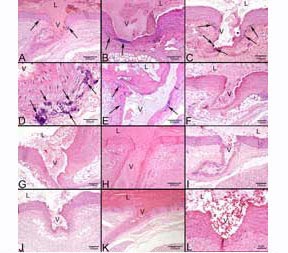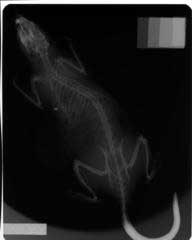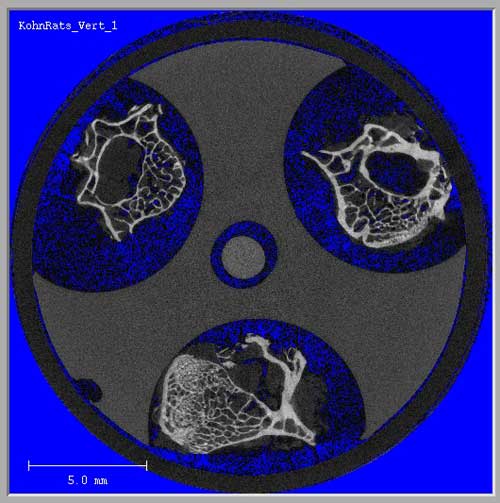MEDICAL GENETICS
 vkorc1 mutations affect blood coagulation |
One medical application of our work will be to provide a more complete collection of genes that may mediate warfarin-drug interactions.
Moreover, we study the phenotype of vkorc1 mutant lab strains of rats and mice, because, blood coagulation aside, vitamin K-related disease in humans is a widely discussed possibility. However, the manner in which such disease may manifest itself is a subject of speculation.
We are examining the vkorc1 mutant rat and mouse in detail for potential health issues due to vitamin K deficiency.
 vkorc1 mutant rats display calcification of the aorta walls (click on image to view larger version) |
 |  |
MRI of a warfarin resistant vkorc1 mutant rat. | microCT scan of the femurs of warfarin resistant vkorc1 mutant rats. |